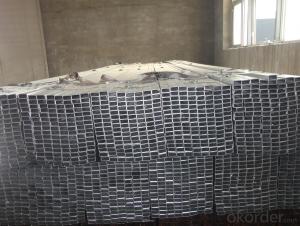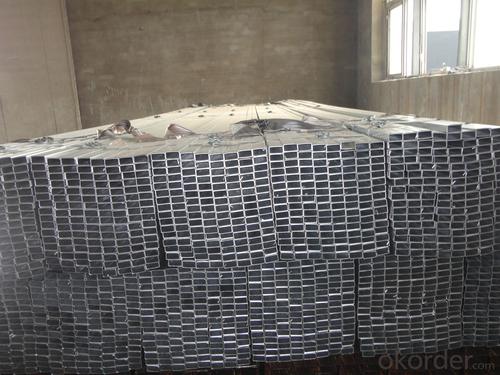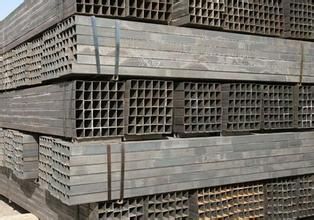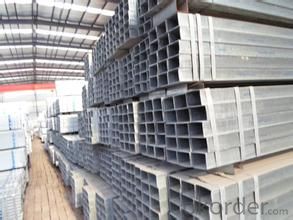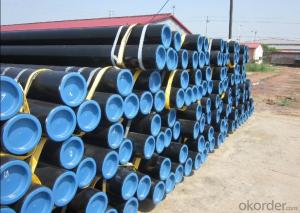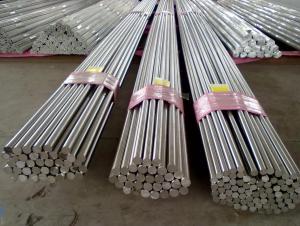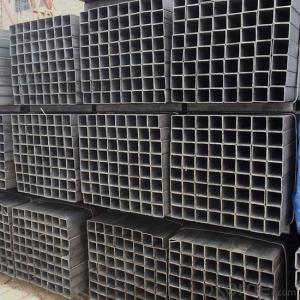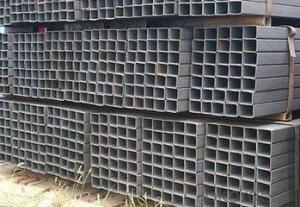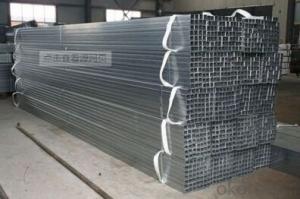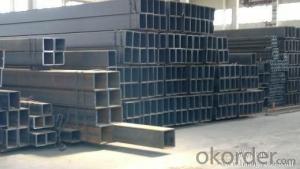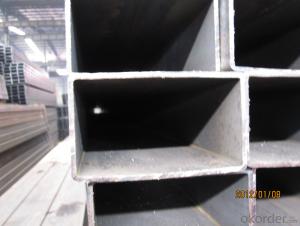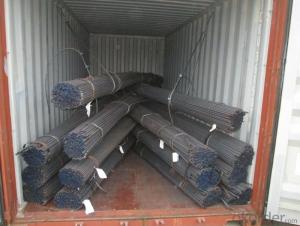Rectangular Hot Rolled Steel Tube With Reasonable Price
- Loading Port:
- China main port
- Payment Terms:
- TT or LC
- Min Order Qty:
- 100 m.t.
- Supply Capability:
- 10000 m.t./month
OKorder Service Pledge
OKorder Financial Service
You Might Also Like
1.Quick Details
Thickness: | 1.0 - 35 mm | Section Shape: | Square | Outer Diameter: | 20*20-600*600 |
Place of Origin: | Shandong China (Mainland) | Secondary Or Not: | Non-secondary | Application: | Structure Pipe |
Technique: | Cold Rolled | Certification: | CE | Surface Treatment: | oil,paint |
Special Pipe: | Thick Wall Pipe | Alloy Or Not: | Non-alloy | Name: | Square Hollow Steel Pipe/Tube |
Shape: | Square/Rectangular | Yield Strength: | 360-380Mpa | Tensile Strength: | 560-580Mpa |
Elongation: | 24-28% | Bend Test: | Qualified | Impact Value: | V-notch |
Grade: | 20#,45#,16Mn,A210,St45,Q235,Q345,Q195,Q215,10#-45#,A53-A369,ST35-ST52,Q195-Q345 | Standard: | JIS G3465-2006,JIS G3466,GB/T 3094 |
2.Specifications
1. OD:15X15-800X800MM,20X30--600X800MM
2. Thick.:1.0--35.0MM
3.FAQ of Rectangular Steel Tube
①How is the quality of your products?
If you want see our quality certifications and all kinds of testing report, please just ask us for it.
Guaranteed: If products’ quality don’t accord to discription as we give or the promise before you place order, we promise 100% refund.
②How about price?
We have a policy that “ for saving time and absolutely honest business attitude, we quote as lowest as possible for any customer, and discount can be given according to quantity”,if you like bargain and factory price is not low enough as you think, just don’t waste your time.Please trust the quotation we would give you, it is professional one.
③Why should you chose us?
Our service formula: good quality+good price+good service=customer’s trust
SGS test is available, customer inspection before shipping is welcome, third party inspection is no problem.
If you have any question, pls feel free to contact us !
4.Rectangular Hot Rolled Steel Tube Image
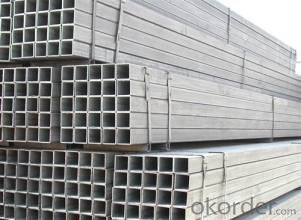
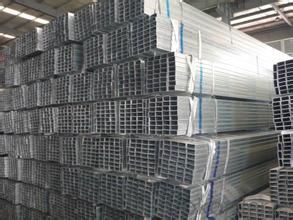
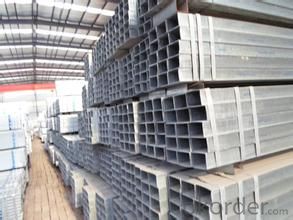
- Q: How are steel pipes used in the manufacturing sector?
- Steel pipes are used in the manufacturing sector for various purposes such as transporting fluids and gases, supplying water, and carrying out structural applications. They are commonly used in industries like oil and gas, construction, automotive, and aerospace for their durability, strength, and resistance to corrosion. Additionally, steel pipes are crucial in the manufacturing of machinery, equipment, and infrastructure, making them essential components in many manufacturing processes.
- Q: How are steel pipes tested for mechanical strength?
- Steel pipes are tested for mechanical strength through various methods such as tensile testing, impact testing, and hardness testing. Tensile testing involves pulling the pipe until it breaks to determine its maximum strength and elasticity. Impact testing measures the ability of the pipe to withstand sudden loads or impacts. Hardness testing determines the pipe's resistance to indentation or scratching, which indirectly reflects its mechanical strength. These tests ensure that steel pipes meet the required standards and can withstand the intended applications.
- Q: Seamless steel tube DN15 specification phi 18*3 what do you mean?
- Seamless steel pipe having a hollow cross section, used as a conduit for conveying fluids, such as pipelines for transporting petroleum, natural gas, gas, water, and certain solid materials. Compared with solid steel such as round steel, steel tube is lighter in strength and equal in resistance to bending and torsion. It is an economical cross section steel and is widely used in the manufacture of structural and mechanical parts.
- Q: Can steel pipes be used for underground electrical conduits?
- Yes, steel pipes can be used for underground electrical conduits. Steel pipes are durable, strong, and resistant to external forces, making them suitable for protecting electrical wiring in underground installations. Additionally, steel pipes offer excellent corrosion resistance, ensuring the longevity and safety of the electrical system.
- Q: What are the different types of coatings applied to steel pipes?
- There are several types of coatings applied to steel pipes, including epoxy coatings, fusion-bonded epoxy (FBE) coatings, polyethylene (PE) coatings, polyurethane (PU) coatings, and zinc coatings.
- Q: How are steel pipes used in the telecommunications sector?
- Steel pipes are commonly used in the telecommunications sector for various purposes. Firstly, steel pipes are used as conduit for underground cable installations. These pipes provide protection and support to the fiber optic cables that carry data and voice signals across long distances. The sturdy nature of steel pipes ensures that the cables remain safe from external factors such as moisture, rodents, and accidental damage. Additionally, steel pipes are used in the construction of telecommunication towers and masts. These structures require a strong and durable material to support the weight of antennas, transmitters, and other equipment. Steel pipes, with their high tensile strength and resistance to harsh weather conditions, are ideal for this purpose. Moreover, steel pipes are used for the installation of overhead communication lines. These lines are often suspended between poles or towers, and steel pipes are used as supports or brackets to hold the cables in place. The corrosion-resistant properties of steel make it a reliable choice for outdoor installations that are exposed to the elements. In summary, steel pipes play a crucial role in the telecommunications sector by providing protection, support, and durability to cable installations, tower constructions, and overhead communication lines. Their strength and resistance to environmental factors make them an essential component in building and maintaining reliable telecommunications networks.
- Q: Are steel pipes suitable for underground sewage systems?
- Indeed, underground sewage systems can be effectively served by steel pipes. Renowned for their robustness, longevity, and ability to resist corrosion, steel pipes emerge as the perfect selection for subterranean installations. By withstanding the immense pressure and weight of the soil above them, these pipes guarantee the integrity of the sewage system. Furthermore, steel pipes boast an extended lifespan and exhibit exceptional resistance to extreme temperatures and environmental adversities, rendering them a dependable choice for subterranean purposes. Nevertheless, it is crucial to acknowledge that a suitable coating and insulation must be diligently applied to steel pipes to safeguard against corrosion and secure their longevity.
- Q: How are steel pipes used in the chemical industry?
- Steel pipes are widely used in the chemical industry for various purposes such as transporting chemicals, gases, and liquids. They are known for their strength, durability, and resistance to corrosion, making them suitable for handling corrosive substances. Steel pipes are used for transferring raw materials, intermediate products, and final products within chemical plants, as well as for connecting different equipment and machinery. They are essential for maintaining a safe and efficient flow of chemicals throughout the industry.
- Q: Are steel pipes suitable for underground mining applications?
- Yes, steel pipes are suitable for underground mining applications. Steel pipes have been widely used in the mining industry for various purposes such as water supply, ventilation, and conveyance of materials. The strength and durability of steel pipes make them suitable for the harsh and demanding conditions of underground mining. Steel pipes are known for their high tensile strength, which allows them to withstand the pressure and stress exerted by the surrounding rock and earth in underground mining operations. They can handle heavy loads, making them suitable for transporting materials and supporting structures in mining tunnels. Additionally, steel pipes are resistant to corrosion, which is crucial in underground mining where moisture and various chemicals are present. Their corrosion resistance ensures the longevity and reliability of the pipes, reducing the need for frequent replacements and maintenance. Furthermore, steel pipes can be easily welded and joined, allowing for customization and flexibility in designing underground mining systems. They can be adapted to various shapes and sizes to meet specific mining requirements. In conclusion, steel pipes are highly suitable for underground mining applications due to their strength, durability, corrosion resistance, and versatility. They have been proven to be effective in supporting mining operations and ensuring the safety and efficiency of underground mining processes.
- Q: What is the difference between steel pipes and fiberglass-reinforced pipes?
- The main difference between steel pipes and fiberglass-reinforced pipes lies in their composition and structural characteristics. Steel pipes are made of a durable metal alloy, typically carbon steel, which provides strength and resistance to high pressure and temperature. On the other hand, fiberglass-reinforced pipes are composed of a plastic matrix reinforced with glass fibers, making them lightweight, corrosion-resistant, and suitable for various applications. While steel pipes are commonly used in industrial settings, fiberglass-reinforced pipes are often utilized in sectors requiring corrosion resistance, such as chemical processing, wastewater treatment, and oil and gas industries.
Send your message to us
Rectangular Hot Rolled Steel Tube With Reasonable Price
- Loading Port:
- China main port
- Payment Terms:
- TT or LC
- Min Order Qty:
- 100 m.t.
- Supply Capability:
- 10000 m.t./month
OKorder Service Pledge
OKorder Financial Service
Similar products
Hot products
Hot Searches
Related keywords
